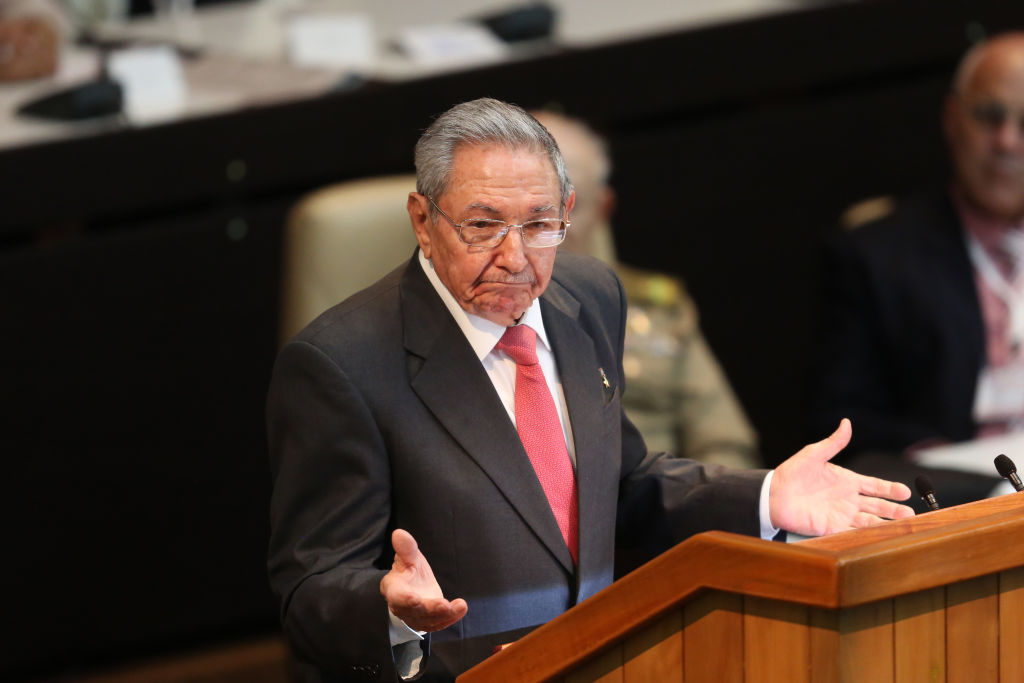Cuba's new leaders won't have 'historical legacy' as a shield in post-Castro world, scholar says


A free daily email with the biggest news stories of the day – and the best features from TheWeek.com
You are now subscribed
Your newsletter sign-up was successful
For the first time in 60 years, Cuba will soon be without a Castro in a formal, day-to-day leadership position.
Raúl Castro, the younger brother of the late Fidel Castro, confirmed Friday that he's stepping down from his role as the leader of the country's Communist Party, with President Miguel Diaz-Canel expected to take on double duties, as the Castro brothers did before him. The younger Castro, who is 90, is poised to remain an influential figure on the island, but he likely won't interfere with daily governance, The New York Times notes. That means a new era is on the horizon, as Cuba faces challenges from both the coronavirus and a struggling economy.
The next generation of leadership could allow for more free-market activity, a path that's not completely new for Cuba; Raúl, who is considered more pragmatic than his brother, began the process of implementing some reforms following Fidel's death in 2011, but it's been a slow grind. There's no guarantee a new regime will change that — Richard Feinberg, a professor at the University of California, San Diego, told Al Jazeera that he thinks it's the "worst possible moment" for reforms because the government has "no money."
The Week
Escape your echo chamber. Get the facts behind the news, plus analysis from multiple perspectives.

Sign up for The Week's Free Newsletters
From our morning news briefing to a weekly Good News Newsletter, get the best of The Week delivered directly to your inbox.
From our morning news briefing to a weekly Good News Newsletter, get the best of The Week delivered directly to your inbox.
That said, urgency may rule the day in a post-Castro world. Arturo Lopez-Levy, the author of Raul Castro and the New Cuba: A Close-Up View of Change and an assistant professor at Holy Names University, told Al Jazeera that, unlike the brothers, their successors will have to "rely on performance — not on historical legacy — to exercise power and as a source of legitimacy." Read more at The New York Times and Al Jazeera.
A free daily email with the biggest news stories of the day – and the best features from TheWeek.com
Tim is a staff writer at The Week and has contributed to Bedford and Bowery and The New York Transatlantic. He is a graduate of Occidental College and NYU's journalism school. Tim enjoys writing about baseball, Europe, and extinct megafauna. He lives in New York City.
-
 Nobody seems surprised Wagner's Prigozhin died under suspicious circumstances
Nobody seems surprised Wagner's Prigozhin died under suspicious circumstancesSpeed Read
-
 Western mountain climbers allegedly left Pakistani porter to die on K2
Western mountain climbers allegedly left Pakistani porter to die on K2Speed Read
-
 'Circular saw blades' divide controversial Rio Grande buoys installed by Texas governor
'Circular saw blades' divide controversial Rio Grande buoys installed by Texas governorSpeed Read
-
 Los Angeles city workers stage 1-day walkout over labor conditions
Los Angeles city workers stage 1-day walkout over labor conditionsSpeed Read
-
 Mega Millions jackpot climbs to an estimated $1.55 billion
Mega Millions jackpot climbs to an estimated $1.55 billionSpeed Read
-
 Bangladesh dealing with worst dengue fever outbreak on record
Bangladesh dealing with worst dengue fever outbreak on recordSpeed Read
-
 Glacial outburst flooding in Juneau destroys homes
Glacial outburst flooding in Juneau destroys homesSpeed Read
-
 Scotland seeking 'monster hunters' to search for fabled Loch Ness creature
Scotland seeking 'monster hunters' to search for fabled Loch Ness creatureSpeed Read



